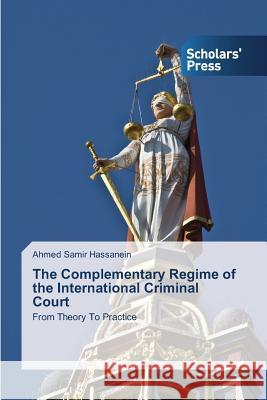The Complementary Regime of the International Criminal Court » książka
The Complementary Regime of the International Criminal Court
ISBN-13: 9783639702309 / Angielski / Miękka / 2013 / 392 str.
The principle of complementarity is the cornerstone of the establishment of the International Criminal Court as well as one of the key factors for its successful operation. The ingenuity of the complementarity regime lies in its flexibility and adaptability. The ability of the principle of complementarity to reconcile several conflicting interests is unequivocally epitomized in the creation of the International Criminal Court itself. Furthermore, the noticeably flexible formulation of the principle of complementarity makes the principle highly adaptable and thus continuously evolving. Having said that, the qualities of being flexible and adaptable make the task of interpreting the principle of complementarity extremely sensitive and technically tricky. According to the current wording of the principle of complementarity in the Rome Statute, the ICC could factually exercise primacy over the national jurisdictions, if a loose interpretation of the principle is adopted, or conversely being residual to national jurisdictions, if the principle was strictly interpreted.
The principle of complementarity is the cornerstone of the establishment of the International Criminal Court as well as one of the key factors for its successful operation. The ingenuity of the complementarity regime lies in its flexibility and adaptability. The ability of the principle of complementarity to reconcile several conflicting interests is unequivocally epitomized in the creation of the International Criminal Court itself. Furthermore, the noticeably flexible formulation of the principle of complementarity makes the principle highly adaptable and thus continuously evolving. Having said that, the qualities of being flexible and adaptable make the task of interpreting the principle of complementarity extremely sensitive and technically tricky. According to the current wording of the principle of complementarity in the Rome Statute, the ICC could factually exercise primacy over the national jurisdictions, if a loose interpretation of the principle is adopted, or conversely being residual to national jurisdictions, if the principle was strictly interpreted.











